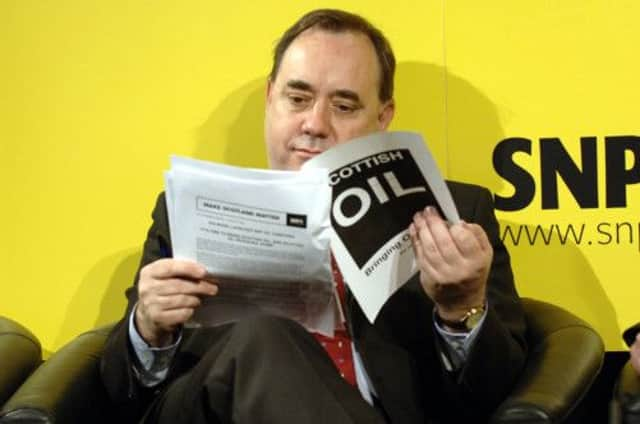Eddie Barnes: Oiling the wheels of independence


The choice was apt, as this was a document aimed first and foremost at the big sector players rather than the voting public – and aimed squarely at giving them as much comfort as possible.
The 50-page document could not have bent further towards the needs of the industry. Post-independence, there would be a fiscal regime in Edinburgh to incentivise production. There would be certainty on government plans, including a commitment to let Big Oil know of any tax changes before they come into force. There were no plans to raise the overall tax take from the industry. There would be a cast-iron guarantee that oil firms would still get billions of pounds in tax relief to help offset the cost of decommissioning rigs over the coming decades.
Advertisement
Hide AdAdvertisement
Hide AdScottish ministers would, during negotiations with the rest of the UK after a Yes vote, ask Westminster to stump up at least some of the cost of this relief. But, the document added, “the outcome of these negotiations will have no impact on the value of relief received by operators”. In other words, no matter what, you’ll get your money, Mr Salmond told oil firms yesterday. It was of little surprise to see the big industry umbrella group Oil & Gas UK welcoming the paper.
The sweetheart deal is the inevitable consequence of economic and political realities. Mr Salmond knows full well that he will need an immediate transfusion of oil funds in the years after independence to help pay for services in Scotland (his Fiscal Commission declared earlier this year that “in the near term it [Scotland] would therefore have to use North Sea revenues to fund current public services and reduce public sector borrowing”). The oil players will, therefore, need to be wooed into the North Sea’s remaining reservoirs with every government offer available.
More immediately, and before the vote, the pro-independence cause cannot risk pushing the industry into the hands of the pro-UK side, and seeing major players supporting the opposite side.
The main beneficiary of all this is Oil & Gas UK, which now enjoys a strong political hand. Its chief executive, Malcolm Webb, declared yesterday he remains “firmly neutral” on the big question, and no wonder.
He has both sides now straining at the leash to prove they can offer his members the best deal.
The great disappeared, by contrast, are the Mr Salmond’s allies in the independence cause, the Greens. Yesterday, Patrick Harvie, the Green MSP, angrily declared that Mr Salmond was “simply copying Westminster’s position” by fighting over “who’s the best supporter” of the oil extractors. Mr Harvie’s complaint was ignored. The great game of the independence referendum has moved on.